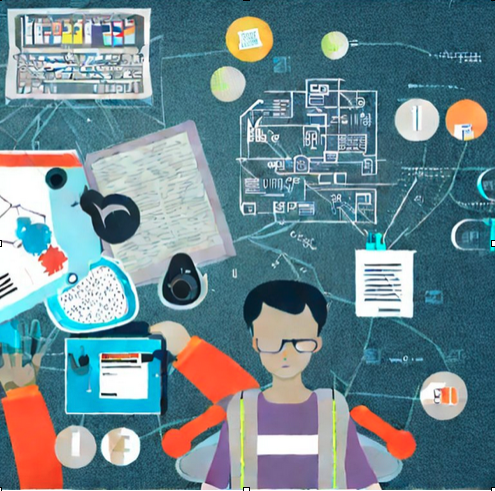
Early in July, UNESCO published a new paper, Generative AI and the Further of Education by the UNESCO Assistant Director-General for Education @ Stefania Giannini highlighting the opportunities and challenges of generative AI tools for learning. The paper calls for urgent action ”to ensure the integration of these new technologies on our terms.”
Unesco have been long working on the use of technology and AI for education, promoting it as a potential tool to overcome lack of educational opportunities in many countries and to support the Sustainable Development Goals set by the United Nations.
Stefania, herself a language researcher, says that the human monopoly on advanced language –is no longer something we can take for granted and recognizing this is forcing us to revisit the beliefs and assumptions that uphold our current education systems and, wider societies.
She goes on to consider the implications of AI for knowledge systems. “Machines that offer immediate, concise and seemingly definitive answers to knowledge questions can be helpful to learners, teachers, and others”, she says. “But the technology can also usher in a world where machine knowledge becomes dominant, and proprietary AI models are elevated to global, and perhaps even revered, sources of authority. These models will project certain worldviews and ways of knowing and background others.”
This may be even more so in a situation with just one or two AI models and platforms, some of them already exercising near monopolistic powers, who are able :to assert even greater dominance over our interface with knowledge,” Stefania considers that “As AI technology continues to permeate our world, we must preserve and safeguard the diversity of our knowledge systems and develop AI technologies in ways that will protect and expand our rich knowledge commons. We cannot allow our varied systems for producing knowledge to atrophy, and we must guard against delinking knowledge creation form human beings.“
In terms of education system Stefanie believes “AI is forcing us to ask questions about the ‘known-world’ that we usually take as a starting point for education. Many of our old assumptions and norms, especially those concerning knowledge and learning, appear unlikely to sustain the ‘weight’ of this new technology. We can no longer just ask ‘How do we prepare for an AI world?’ We must go deeper: ‘What should a world with AI look like? What roles should this powerful technology play? On whose terms? Who decides?’ Education systems need to return agency to learners and remind young people that we remain at the helm of technology. There is no predetermined course.
Education has a special obligation to be finely attuned to the risks of AI – both the known risks and those only just coming into view. But, Stefania considers “too often we are ignoring the risks.”
One answer is to adopt the same process as is commonly applied to educational resources for use in schools and with schoolchildren p typically vetted, at a minimum, on four main criteria:
(1) accuracy of content,
(2) age appropriateness,
(3) relevance of
pedagogical methods, and
(4) cultural and social suitability which encompasses checks to protect against bias.
“AI models and applications that claim to have educational utility should be examined according to similar criteria, and others, given their complexity and reach, before being deployed at scale. It is rather remarkable that they have largely bypassed scrutiny of this sort.“
Stefania warns that “we would be naïve to think that future AI utilities will not strengthen calls for further automation of education: teacher-less schools, school-less education, and other dystopic visions. Developments like these are sometimes carried out in the name of efficiency and often impact the most disadvantaged learners first.”
And at the time when immense sums are being spent developing Generative AI more than 700 million people are non-literate. With continuing under funding of both school and teachers. And Stefania concludes: “Even if AI starts to exceed humans in a wide range of intellectual abilities, educating people will remain important and developing literacy most of all.”

Great write, immigrant workers will be replaced by robots. Paricilary menial jobs, like cleaning and taking care of the old.